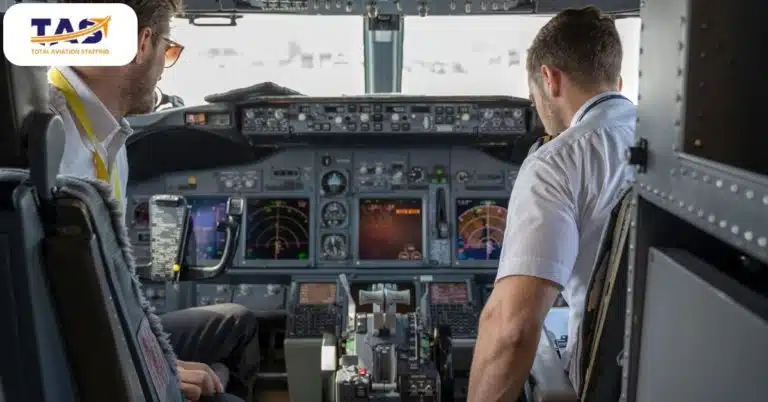How to Develop Aviation Problem-Solving Abilities

Aviation is a fascinating and constantly-evolving industry. It takes a unique set of problem-solving skills to be successful in the field, and that’s what we’re going to talk about today.
Many people think aviation is all about flying planes. While that’s certainly a big part of it, aviation encompasses so much more than that! There are countless jobs available in the aviation industry, from air traffic control to aircraft maintenance. And each one requires its own specific set of skills.
If you’re looking for an exciting and challenging career, aviation might be just what you’re looking for. These days, airlines are expanding their fleets and hiring new personnel at a rapid pace. So there’s plenty of opportunity for motivated individuals who want to make their mark in this rapidly-growing industry.
1. Stay Calm Under Pressure
Being able to stay calm under pressure is an essential skill for any aviation professional. In a high-stakes environment like aviation, decisions need to be made quickly and often with incomplete information. This can be overwhelming, but it’s important to remember that staying calm under pressure is a learned skill.
By following a few simple steps, you can develop the ability to stay calm and make clear decisions even in the most challenging situations. First, it’s important to get rid of distractions and focus on the task at hand. Second, take a deep breath and try to slow down your thoughts. third, think through the problem systematically and consider all of the possible options before making a decision. fourth, trust your training and experience, and fifth, stay positive and confident in your abilities.
By following these steps, you can develop the skills necessary to stay calm under pressure and make sound decisions – even in the most challenging situations.

2. Be Observant and Analytical
One key aspect of being a successful aviator is developing strong problem-solving abilities. In any given flight, there are hundreds of potential problems that could arise, ranging from technical issues with the aircraft to bad weather conditions.
An observant and analytical pilot will be able to quickly identify potential problems and develop solutions to keep the flight on track. There are a few key things to keep in mind when trying to develop these abilities.
First, always be aware of your surroundings and take note of any changes. If something doesn’t look right, don’t hesitate to ask questions or investigate further. Second, think critically about each situation and consider all possible solutions before taking action.
By taking the time to develop these skills, you’ll be better prepared to handle any challenges that come your way.

3. Practice Situational Awareness
Situational awareness (SA) is defined as “the ability to identify, process, and comprehend the critical elements of information about what is happening to the team with regards to the mission”. In order to develop strong SA abilities, it is important to practice regularly.
There are a few different ways that you can do this. One is to set up scenarios in which you have to make decisions based on incomplete information. For example, you might role-play being the captain of an aircraft that has lost engine power.
What would you do? Another way to practice SA is to take note of your surroundings when you are not in a training environment. Pay attention to small details and try to put yourself in other people’s shoes. For example, if you are at an airport, watch the airplanes taking off and landing and think about what the pilots and air traffic controllers are doing.
By practicing SA regularly, you will be better prepared to deal with aviation problems when they occur.

4. Develop a Questioning Attitude
One key ability that all aviation professionals must develop is the ability to effectively solve problems. This requires a number of different skills, including the ability to think critically and to develop a questioning attitude.
A critical thinker is able to examine a problem from multiple angles and identify both the root cause of the problem and potential solutions. A questioning attitude, on the other hand, is essential for challenging assumptions and pushing beyond current thinking.
Together, these two skills can help any aviation professional to develop creative and innovative solutions to even the most challenging problems.

5. Train Your Brain to Think Differently
It is important to train your brain to think differently. This means stepping out of your comfort zone and trying new things. It could mean taking a course in aviation technology or attending aviation conferences outside of your usual industry.
It could also mean reading aviation magazines or books from different perspectives than what you are used to. By exposing yourself to different topics and viewpoints, you can develop the skills needed to think critically and come up with creative solutions to aviation-related problems.

6. Take Risks and Be Innovative
As an aviation professional, you know that being able to solve problems quickly and efficiently is essential to maintaining a safe operation. There are many factors that contribute to effective problem-solving, but two of the most important are taking risks and being innovative.
In any given situation, there are often multiple ways to approach a problem. The best way to find the solution is to try out different ideas and see what works. This means taking risks and not being afraid to fail. It may seem counterintuitive, but sometimes the best way to solve a problem is to make a mistake and learn from it.
In addition to taking risks, it is also important to be innovative in your approach to problem-solving. This means thinking outside the box and coming up with creative solutions. creativity often comes from looking at a problem from a different perspective. So next time you’re faced with a challenge, take some time to step back and look at it from a different angle. You may be surprised at the solution you come up with.
Effective problem-solving is essential for any aviation professional. By taking risks and being innovative in your approach, you can improve your ability to find the best solutions for any situation.

7. Practice Problem-Solving Skills Regularly
Like any skill, problem-solving requires practice. To stay sharp, aviation professionals should make sure to practice their problem-solving skills regularly. This could mean doing aviation case studies or playing aviation-themed board games with friends and family.
It could also mean taking part in aviation challenges online or at conferences and seminars. These activities can help aviation professionals stay sharp and up-to-date with the latest aviation trends and technology.
Overall, becoming a successful aviation professional requires a number of different skills, including critical thinking, questioning attitude, taking risks, being innovative, and practicing problem-solving regularly. By developing these attributes, aviation professionals can ensure they are prepared to address any potential aviation-related problems that arise.

In conclusion
Overall, aviation professionals must be prepared to address any challenge that comes their way. Critical thinking and a questioning attitude are two essential skills for developing creative solutions to aviation-related problems. Additionally, aviation professionals should take risks and be innovative when approaching a problem, as well as practice their problem-solving skills regularly so they stay sharp and up-to-date. By developing these attributes, aviation professionals can ensure they are prepared to tackle any aviation-related challenge that comes their way.
